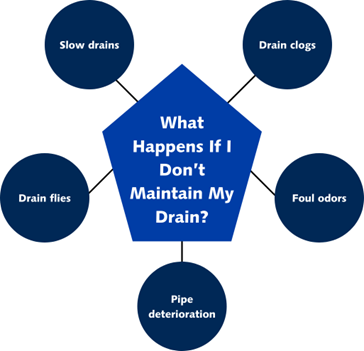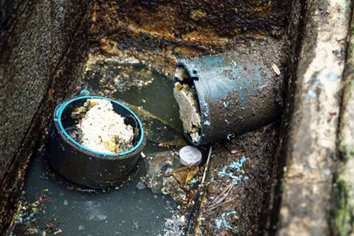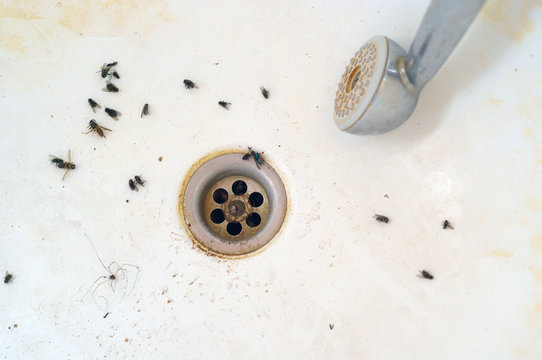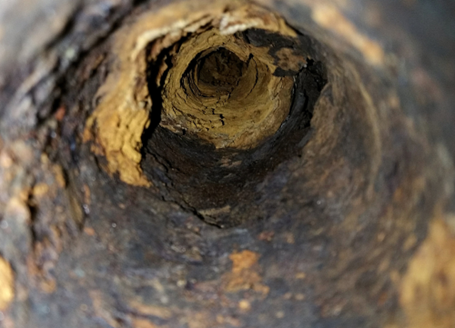What Happens If I Don’t Take Care of My Facility’s Drain?
What Happens If I Don’t Take Care of My Facility’s Drain?
You want to take care of your facility’s drain the best way you can. But how do you best take care of your drain? Should you use preventative maintenance? Is it really needed? Should you just snake your drain more frequently? Use drain openers for clogs?
State Chemical has been selling both industrial drain openers and industrial drain maintainers for decades. We’ve seen firsthand that there are a lot of questions about how to best care for your drain, and we know that if you’re considering preventative maintenance, you might be wondering what could happen if you opt out.
To best address these questions, we’ve taken the time to explain the true consequences of not completing regular preventative maintenance for your facility’s drain. After reading, you’ll understand how neglected drains are impacted and how to best care for them instead.
What Happens If I Don’t Do Preventative Drain Maintenance?
As a representative for your facility, you are within your rights to make any decision about your drain that works best for you. But what could happen if you don’t maintain your drain?
Slow Drains
The first sign of a drain issue will often be a slow drain. When you run water, it might take several minutes to drain, letting out an unsettling gurgle once it’s finally depleted. This can make any task more frustrating—just think about dirty water sitting idly in the sink during the Friday night dinner rush.
So, why does this happen? Well, when you actively use a drain, it’s functionally impossible to prevent substances from going down the drain in addition to water. Some of these substances are fats, oils, and greases (FOGs), food scraps, soap scum, hair, natural oils, and more. And when these items go down the drain, they tend to congeal and catch on to other items in the pipes. Over time, this will start to limit available pipe space, and water will take longer to drain. To solve this issue, you’ll have to use a drain opener or start using a drain maintainer to clear out buildup.
Meanwhile, if you use preventative drain maintenance from the jump, buildup is broken up before it can form, allowing particles to easily pass into the sewer lines.
Drain Clogs
Drain clogs are very similar to slow drains—just more severe. When substances other than water go down your drain, they build and congeal. Sometimes, this can get so bad that the pipe becomes fully blocked. Other times, a foreign object can get caught in already-formed buildup and cause a clog.
Think about the soap going down your drain. After time, the scum and residue cake onto the sides of your pipes. If hair now goes down your drain, it gets stuck in the soap coagulation. Over time, this will fully block your drain.
However, if you break down this kind of buildup before it starts to create issues, you can prevent these kinds of clogs in the first place. Then, you won’t have to scramble to get a drain opener or call a plumber down the line.
Odors
Another outcome of FOG buildup is odors. Just as food would rot in a trash can, food will rot after it goes down your drain, and it’s something you’ll be able to smell.
With preventative maintenance to counteract FOG buildup, odors shouldn’t be a problem. However, without it, you will experience foul odors, which can be a serious turnoff for customers as well as a headache for your staff.
Drain Flies
Ever noticed an abundance of gnats hanging around your kitchen? These probably aren’t gnats but drain flies, which live and breed in FOG buildup in drains.
If you don’t treat your drain, this buildup will grow, and you’re at risk of a drain fly problem. Then, you’ll need to invest in drain maintainers anyway to eliminate their habitats and deter them from your drain.
It’s true that you treat a drain fly problem in the same way that you prevent one. So, it might be easy to wait until you see evidence of an issue, but if you can avoid it altogether, you won’t have to worry about health code violations or the ensuing rush to get these pests out of your facility.
Pipe Deterioration
What might cause pipe deterioration, you ask? If you guessed FOG buildup, you’re right.
If you never conduct preventative drain maintenance for your facility, FOGs will build in your pipes over the years. Your pipes may have initially been four inches wide, but with FOG buildup, that free space can dwindle and dwindle into mere centimeters, not unlike what happens with a clogged artery.
Now, imagine that all that buildup was pushed into one of your deeper pipes over the years. This particular pipe happens to run directly under your facility’s parking lot, and its buildup of congealed food scraps and grease is five feet long. Water will no longer come out the other end of the pipe—you have a complete blockage.
At this point, a drain snake cannot reach the issue and chemical drain openers can’t burn through five straight feet of buildup. You’ll have to tear up your parking lot just for the plumber to be able to reach the pipe and clean it out.
This would be bad enough as is, but after years of this gunk building up in your pipes, it’s possible that it might have led to pipe rot. To treat this, you’ll need to replace the affected pipes, meaning more destruction of property. If you don’t treat it, your water will continue to leak into the ground rather than properly draining. This can and does eventually lead the ground to cave in.
Preventative maintenance may seem like a small thing. It’s probably not something that you even think about. But when it comes to drain care, you only have two options: preventative maintenance or reactive maintenance. Over time, not caring for your drain can have a destructive outcome.
Your Next Steps: Prevent FOG Buildup Now, Save Your Drain from Problems in the Long Run
You want to take care of your drain as best as possible without any added hassle. Now, you understand the consequences of opting out of preventative maintenance. Your next step is to explore solutions to common concerns about drain maintenance agreements.












